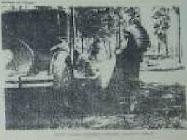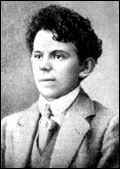At the end of previous post, I contrasted both bohemian poetics & postmodernism with the poetic capacity of the "visionary".
It may be that the meaning of visionary here hinges on a concept of philosophy, and on how we conceive the relation between poetry & philosophy.
Postmodernism generally seems to posit a kind of Dionysian or Nietzschean "irreality" which de-centers both reality itself, and the philosophical language which aims to delineate it.
Olsonian-derived Projectivism seems to represent a genuine effort to "envision" reality in a holistic way, but it's accompanied by a kind of magico-mysterium hierophantic attitude which tends toward elitism & obscurantism.
"New American" poetry generally seems derived from a poetics more than a unified philosophy : a poetics of expressive free engagement rather than traditionalist formalities, codes & idioms.
A "serious" poetics as opposed to a "minor" poetics would maybe be grounded in some form of realism, by which I mean the assumption by both Plato & Aristotle, both the philosopher of formal beauty & the philosopher of natural energeia, that there exists an objective Reality which humans can and should aim to interpret as rightly as possible.
The battles between philosophy & poetry I think about in terms of the Western integration of "Hellenism" & "Hebraism". Hellenism asserts the human capacity to objectify the True & the Real in philosophical/scientific signs. Hebraism emphasizes the underlying & mysterious subjectivity of phenomena, grounded in a Creation which is the artifice of a divine Nature which is itself imaged in human beings (as the "faces" or facets of a geometrical figure approach the continuum of the circle). This subjectivity I align with the poetic (as differentiated from the discursive-philosophic) tradition of the Psalmist & the prophets. Poetry asserts a certain vividness of expression which is more truly mimetic of the ultimate Reality than discursive reasoning can achieve. So these two are always in creative rivalry, the one tending toward irrational magic & superstition, the other tending toward dry & dehumanized rationalism.
8.25.2003
Labels:
Hebraism,
Hellenism,
holism,
philosophy,
postmodernism,
reality,
vision
Subscribe to:
Post Comments (Atom)



No comments:
Post a Comment